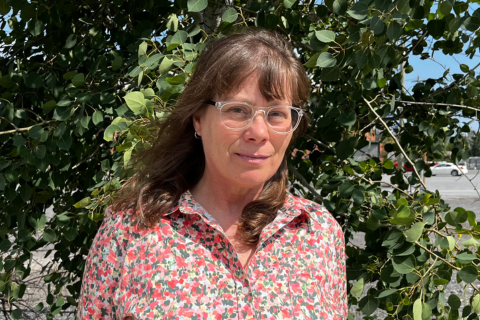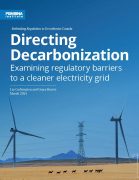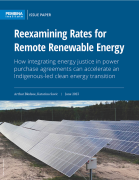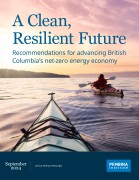Canada is home to around 240 remote communities that rely on diesel fuel to heat and provide electricity to their homes. This system of heating and electricity generation comes with significant social, economic, and environmental costs that Indigenous governments and businesses are working hard to address through clean energy development. For those governments and businesses who seek to transition away from diesel and toward cleaner, locally produced energy, there are a number of barriers to overcome. Key among them are regulatory and legislative roadblocks that make Indigenous leadership in the energy transition especially challenging.
As part of the Pembina Institute’s Rethinking Regulation to Decarbonize Canada series, we examine the regulatory and legislative challenges that remote Indigenous communities face as they seek to reduce diesel use and decarbonize remote microgrids. In particular, we focus on the regulatory systems of four jurisdictions in Canada: British Columbia, the Northwest Territories, Nunavut, and the Yukon.
Throughout the reports, we examine the current status of electricity legislation and regulation in remote communities and offer governments and energy regulators recommendations that can support a community-led clean energy transition.
How this work is organized
Decarbonizing Remote Indigenous Communities is organized into two distinct parts. These include a Summary Report and an accompanying set of Jurisdictional Reports.
Summary report: Our summary report presents an overview of the common regulatory challenges present across B.C., the Yukon, Nunavut, and the Northwest Territories.
Read the Summary Report
Canada has made a commitment to achieving a net-zero electricity grid by 2035 and net-zero greenhouse gas emissions by 2050. Including remote Indigenous communities is essential to ensure an equitable clean energy transition. Findings in the report are summarized as follows:
Outdated policy: Existing legislation and regulations fail to adequately address energy security, emissions reduction, and reconciliation priorities. Urgent updates are needed to support Indigenous self-determination in energy development.
Regulatory reform: Energy regulators require clear directives from the government to support diesel reduction and clean energy development. This cannot happen without government collaboration with Indigenous governments and communities.
UNDRIP Alignment: The adoption of the United Nations Declaration on the Rights of Indigenous Peoples (UNDRIP) in Canada underscores the necessity of aligning energy legislation with Indigenous rights.
Jurisdictional reports and further reading: A deep dive into specific provincial and territorial energy systems and recommendations for reform can be found below:
Read the British Columbia Report

British Columbia (B.C.) is undertaking an important transition to decarbonize its economy and reduce its emissions in response to climate change while pursuing reconciliation with First Nations. Analyzed in this report are the legislative and regulatory frameworks for implementing clean energy projects in remote, diesel reliant communities within B.C., with a special focus on the remote communities serviced by BC Hydro.
Read the Northwest Territories Report
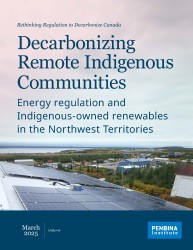
Analyzed in this report are the legislative and regulatory frameworks for implementing clean energy projects in remote, diesel reliant communities within the Northwest Territories. As part of this analysis, we provide an overview of key actors; examine the legislation, regulation, and policy that govern energy development; and highlight the current conditions in the territory that promote or impede clean energy projects.
Read the Nunavut Report
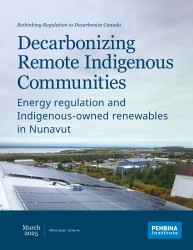
Analyzed in this report are the legislative and regulatory frameworks for implementing clean energy projects in Nunavut’s remote and diesel-reliant communities. As part of this analysis, we provide an overview of key actors; examine the legislation, regulations and policy that govern energy development in remote communities; and highlight the current conditions in the territory that promote or impede clean energy projects.
Read the Yukon Report
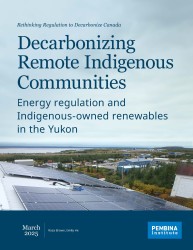
The Yukon has made bold strides in reducing greenhouse gas emissions from electricity generation. Its independent power production and micro-generation policies have proven successful, enabling the development of large and small renewable energy projects. While much emphasis has been on decarbonizing its main grid, this report looks specifically at the challenges of reducing diesel generation on the Yukon's four isolated microgrids.
The path forward
In B.C. and the territories, it is clear that current regulatory and legislative frameworks must be adjusted to reflect modern social, environmental, and economic demands. Governments and regulators must work with Indigenous clean energy leaders to ensure energy systems reflect and integrate Indigenous rights and reinforce collaboration, relationship development, and participation in the regulatory process.








